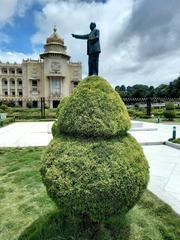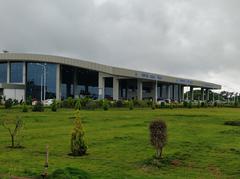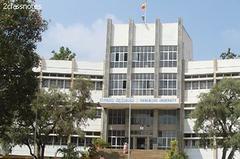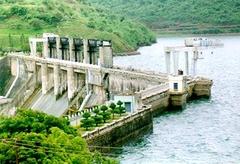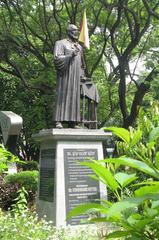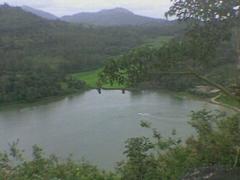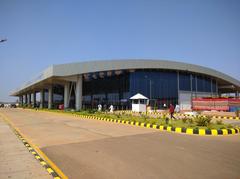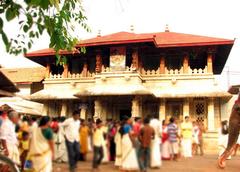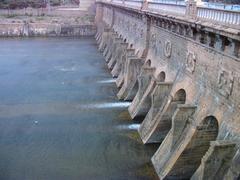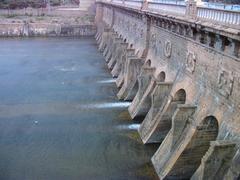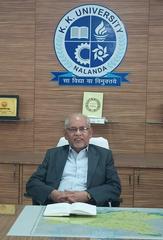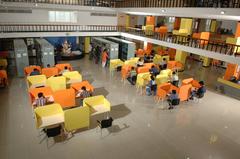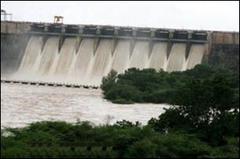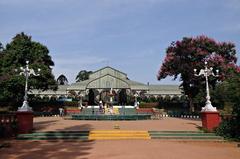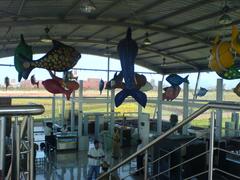Jawaharlal Nehru Centre for Advanced Scientific Research: Visiting Hours, Tickets, and Comprehensive Guide – Karnataka, India
Date: 04/07/2025
Introduction
Situated in the dynamic city of Bengaluru, Karnataka, the Jawaharlal Nehru Centre for Advanced Scientific Research (JNCASR) stands as a distinguished institution dedicated to pioneering scientific research and interdisciplinary innovation. Established in 1989 to honor the birth centenary of India’s first Prime Minister, Jawaharlal Nehru, JNCASR has evolved into a beacon for advanced study, fostering a culture of scientific excellence and outreach.
The 27-acre campus in Jakkur, designed by renowned architects Charles Correa and Sanjay Mohe, seamlessly integrates cutting-edge laboratories, sustainable architecture, and preserved green spaces (JNCASR Campus Information). JNCASR is acclaimed for its research across materials science, molecular biology, neuroscience, theoretical sciences, and beyond, earning national and international recognition (EduRank).
While the Centre primarily serves as a research hub, it also opens its doors to students, educators, and science enthusiasts through guided tours, public lectures, and educational programs. For those planning a visit, this comprehensive guide covers visiting hours, entry policies, ticketing, travel tips, and the unique cultural and architectural features that make JNCASR a landmark in Bengaluru’s scientific landscape.
Table of Contents
- Institutional Significance in Indian and Global Science
- Visiting JNCASR: Visitor Information and Travel Tips
- Campus Architecture and Environment
- FAQ: Frequently Asked Questions
- Conclusion and Recommendations
- References
Institutional Significance in Indian and Global Science
Foundational Purpose and National Role
JNCASR was established in 1989 by the Department of Science and Technology, Government of India, with the mission of advancing cutting-edge research and interdisciplinary collaboration (DST). As a “deemed to be university” since 2002, it enjoys academic and administrative autonomy (JNCASR Status and Accreditation).
The Centre’s academic programs, including Ph.D., Integrated Ph.D., and M.Sc., are highly competitive and attract students from across India and abroad. With a low faculty-to-student ratio, JNCASR emphasizes mentorship and collaborative research (Wikipedia).
Interdisciplinary Research and Innovation
JNCASR is structured into several research units spanning Chemistry and Physics of Materials, Engineering Mechanics, Evolutionary and Organismal Biology, Molecular Biology and Genetics, Neuroscience, Theoretical Sciences, and more (Wikipedia). Its interdisciplinary approach fosters breakthrough discoveries and translational research.
As of 2025, the Centre has produced over 8,300 academic publications with more than 286,000 citations (EduRank). JNCASR’s research strengths include nanotechnology, organic chemistry, and biochemistry, with a strong impact on India’s innovation ecosystem (JNCASR Research).
National and International Rankings
JNCASR consistently ranks among India’s leading research institutions. In the NIRF 2024 rankings, it was placed #34 in ‘Research Institutions’ and holds an A++ NAAC accreditation (JNCASR Status and Accreditation). Internationally, it is ranked in the top 50% globally for multiple research topics (EduRank), and featured in the top 10 global institutes in the 2019 Nature Index (Wikipedia).
Academic and Societal Impact
Beyond research, JNCASR is a hub for academic exchange and outreach. Its Summer Research Fellowship Programme (SRFP), POCE, and POBE initiatives nurture young talent. The Centre’s educational outreach includes training programs for students and teachers, fostering a culture of scientific inquiry (Wikipedia).
Visiting JNCASR: Visitor Information and Travel Tips
Location and Access
JNCASR is located in the Jakkur suburb of Bengaluru, accessible via Rachenahalli Lake Road. The campus is well-connected by BMTC buses, taxis, and auto-rickshaws. Limited parking is available on campus (JNCASR Campus Information).
Visiting Hours and Entry
- Days: Monday to Friday (closed on weekends and public holidays)
- Timings: 9:00 AM to 5:30 PM
- Entry Policy: Visits require prior permission. Educational groups and science enthusiasts should request access at least two weeks in advance.
- Tickets: No entry fee for approved visitors.
- Guided Tours: Available on request for academic or educational groups (JNCASR Visitor Info).
Facilities for Visitors
- Accessibility: The campus is wheelchair accessible with ramps and accessible restrooms.
- Amenities: Cafeteria, health center, library, and open spaces for relaxation (Careers360 Facilities).
- Guest Accommodation: Jawahar Visitor’s House and other guest rooms for official visitors (JNCASR Visitor Info).
Nearby Attractions
Enhance your visit by exploring these nearby sites:
- Bangalore Palace: A historic royal residence, about 15 km from JNCASR.
- Lalbagh Botanical Garden: Famous for its glasshouse and plant diversity, approximately 13 km away.
- Visvesvaraya Industrial and Technological Museum: A family-friendly science museum, 14 km away.
- Indian Institute of Science (IISc): A renowned campus with historical and scientific significance.
- Hebbal and Nagavara Lakes: Ideal for nature walks and bird-watching (Bangalore Tourism).
Tips for Visitors
- Carry a government-issued ID for entry.
- Wear comfortable footwear; campus walking is involved.
- Photography is allowed in public areas but restricted in labs.
- Plan your visit on weekdays and arrange tours in advance.
- Check the JNCASR events page for upcoming talks, workshops, or exhibitions.
Campus Architecture and Environment
Architectural Evolution
Phase 1: Charles Correa’s Design
- Curved Granite Wall: Encircles a preserved forest patch, symbolizing environmental stewardship (Scribd Case Study).
- Brutalist Materials: Exposed concrete and granite, with courtyards and skylights for natural light.
Phase 2: Sanjay Mohe’s Expansion
- Geodesic Dome: A striking architectural highlight connecting new research buildings.
- Central Courtyards and Natural Lighting: Enhance energy efficiency and campus aesthetics.
- Discreet Utilities: Services are recessed for a visually clean environment.
Notable Campus Features
- Advanced Laboratories: Equipped for research in surface science, solid state chemistry, and more.
- Auditorium: Seats up to 900 and hosts academic events (Campus Option).
- Library: Over 9,600 books and 3,500 scientific journals.
- Residential Facilities: Hostels, postdoctoral apartments, and guest houses (Careers360 Facilities).
- Recreational Amenities: Dining hall, cafeteria, gym, and green spaces.
Sustainability and Environmental Integration
- Preserved Forest Core: Granite wall encloses a central forest area (Scribd Case Study).
- Energy-Conscious Design: Natural ventilation and lighting reduce energy use.
- Landscaped Gardens and Tree-Lined Paths: Offer relaxation and foster community.
FAQ: Frequently Asked Questions
Q1: Can anyone visit JNCASR?
A1: Visits are mainly for academic or educational purposes and require prior permission (JNCASR Visitor Info).
Q2: Are there entry fees?
A2: No, entry is free with prior approval.
Q3: Are guided tours available?
A3: Yes, for educational groups and by advance arrangement.
Q4: Is the campus accessible for people with disabilities?
A4: Yes, with ramps and accessible restrooms throughout.
Q5: What transport options are available?
A5: BMTC buses, taxis, and auto-rickshaws; limited parking is available.
Q6: Can I visit on weekends?
A6: Generally, no. Visits are limited to weekdays unless special events are organized.
Q7: What are the best photographic spots?
A7: The granite wall, geodesic dome, and landscaped gardens.
Q8: How do I stay updated on events?
A8: Check the JNCASR Fellowships & Extension Programmes page and follow JNCASR’s official social channels.
Conclusion and Recommendations
The Jawaharlal Nehru Centre for Advanced Scientific Research embodies a remarkable blend of scientific achievement, innovative research, and architectural distinction in Bengaluru. Visitors—whether students, educators, or science enthusiasts—will find JNCASR to be a source of inspiration, offering a unique look into India’s scientific trajectory and commitment to sustainability (JNCASR Home).
To make the most of your visit:
- Arrange your visit in advance and confirm permissions.
- Explore nearby scientific and cultural sites in Bengaluru.
- Engage with JNCASR’s events and outreach programs for a fuller experience.
- Use official resources and travel apps like Audiala for up-to-date information (Bangalore Tourism).
For more information, visit the official JNCASR website.
References
- Jawaharlal Nehru Centre for Advanced Scientific Research (JNCASR) Official Website, 2025
- JNCASR Campus Information, 2025
- EduRank University Rankings, 2025
- Bangalore Tourism, 2025
- JNCASR Visitor Information, 2025
- JNCASR Fellowships & Extension Programmes, 2025
- Wikipedia contributors. Jawaharlal Nehru Centre for Advanced Scientific Research. Wikipedia, The Free Encyclopedia. Accessed 2025.
- Careers360 University Profile, 2025
- Scribd Case Study on JNCASR Architecture, 2025
- Shiksha NIRF Ranking, 2024

